In writing memoir and sifting through the moments of my past, I’ve often been struck by a mystery: why, of the countless moments that make up a life, do only a select few rise to the surface of conscious memory, while the rest slip into the forgotten depths, seemingly deemed unfit for preservation? And the most mysterious of all are those early childhood memoires, mere fragments or isolated flashes that stand out, not because they were momentous occasions like the birth of a sibling or the first day of school, but because of their strange and random vividness. Their meaning, though elusive at first, is undeniable in its intensity.
Virginia Woolf once remarked that much of her childhood felt like “cotton wool”—a foggy, formless passage of time that left little impression: days, weeks, even months slipped by without meaning or mark. But then, without warning, something would jolt her out of this haze, a sudden shock so vivid it imprinted itself on her memory forever. I think we’ve all experienced those moments in childhood—bright, piercing memories that have stayed with us as if they happened only yesterday. Looking back, these fragments have often taken on new meaning, their significance unfolding only after time has passed.
There are two such memories from my own childhood that I remember distinctly, both of which left a deep mark on me, despite occurring before I was even five years old. The first involved an afternoon with my mother. We were sitting together, as we often did, going through the family picture box—an assortment of old photographs capturing moments of a time I didn’t know. My mother would narrate the stories behind the pictures: her siblings, young men in uniform, people dressed in clothing unfamiliar to me. They existed in a world of fairy tales, somewhere between imagination and history.
That day, she showed me a picture of herself as a little girl, a child my age. Confused, I asked, “Where was I?” She laughed as though the answer were simple: “This was before you were here.”
But it wasn’t simple. It brought my entire world to question. How could there be a time before I existed? I had always been here. I was, after all, the very center of “here.”
That moment shook me to the core. It had never occurred to me that my parents had lived lives before I arrived and experienced childhoods I hadn’t been part of. It seemed profoundly unfair and neglectful for them to live in a world without me. It was also terrifying. For the first time, I understood I was not the epicenter of time. My parents had secrets, experiences, and an entire history that existed in a strange place—in a world called “Before Me.” It was like a curtain pulled back, revealing a vast universe where I was not the focal point. I felt a quiet panic, sensing the distance between us. Looking back, I realize that this was my first encounter with the reality of separation and, perhaps, a glimpse of the ultimate separation—death.
A second experience, around the same time, gave me another taste of loss, though it also offered a kind of resolution to the unsettling feeling of the first. I was playing with my younger brothers when my mother called them in for their naps, leaving me alone outside under the blazing sun. Their absence hit me like a wave. The sudden stillness felt immense, and I was overwhelmed by a sense of desolation. The toys scattered across the yard and the complete silence felt lifeless, and for a moment, I was gripped by a sadness that went beyond mere loneliness. It was as if I was mourning something larger, a loss I couldn’t yet name. Maybe it was death whispering from the edges of my awareness once again.
But as I sat in the red wagon, something changed. The sadness began to shift, transforming into something sweeter and less acute. It settled higher in my chest, softer and more manageable. I now recognize that feeling as nostalgia. Odd, perhaps, to feel nostalgia at such a young age, but that’s what it was: a tender longing for a moment that had only just slipped away, a mere few minutes into the past. And yet, in that longing, the moment now breathed with meaning, a sense of timelessness. It was no longer lost; I had turned it into something I could hold on to and keep alive in memory. I had discovered a place where time is infinite. Nostalgia, I found, was a way to transform the unbearable into something beautiful, a way to keep the past from slipping into the void of irretrievable loss. It was like setting the past to music and playing it on an endless loop.
That longing was deep beyond what one might expect from a child. But it became a pattern for me—a way of dealing with loss, even if the loss was as simple as the end of a hot, summer afternoon. Over time, I felt nostalgia not only for moments that had passed but for moments that might never have been or moments that happened but for which I wasn’t present. It became a tool, a way to control the uncontrollable, to hold on to what was slipping beyond my reach.
At first, nostalgia was simply a coping mechanism, a way of comforting myself. But as I grew older, it evolved into something more—a creative strategy, a way of imbuing my life with meaning and depth. Nostalgia wasn’t just about remembering; it became a way of seeing. It allowed me to reimagine the past, to reshape it, not as something lost forever but as something I could carry with me, something I could weave into the fabric of my present and future. As a tool, it has inspired and shaped my writing. It was no accident that my first book was an attempt to recreate my parents’ early lives, the ones they lived without me.
Through nostalgia, I defeated the irreversibility of time. It became a space where nothing was truly gone.
After all, in the land of nostalgia, no one dies forever
.



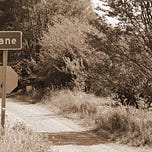







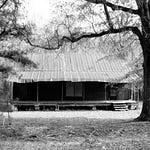
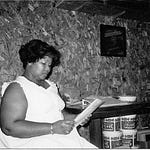
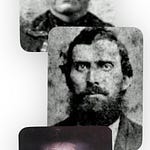
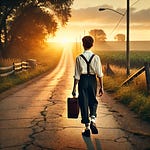
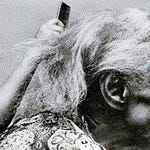
Share this post